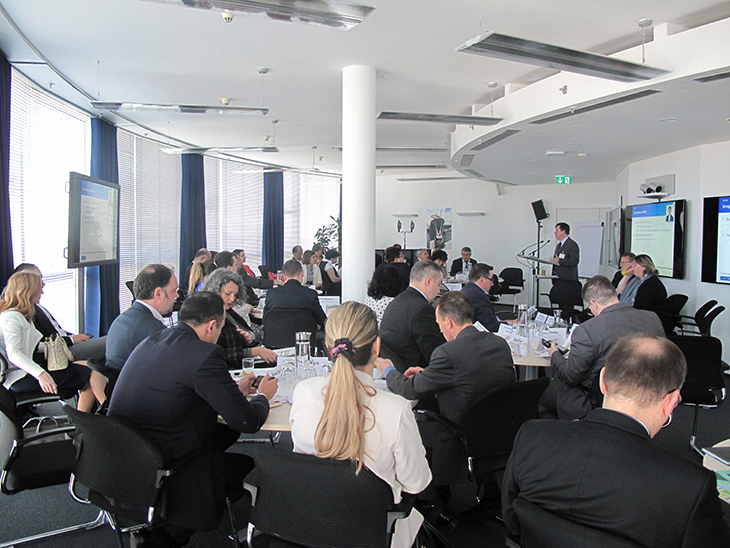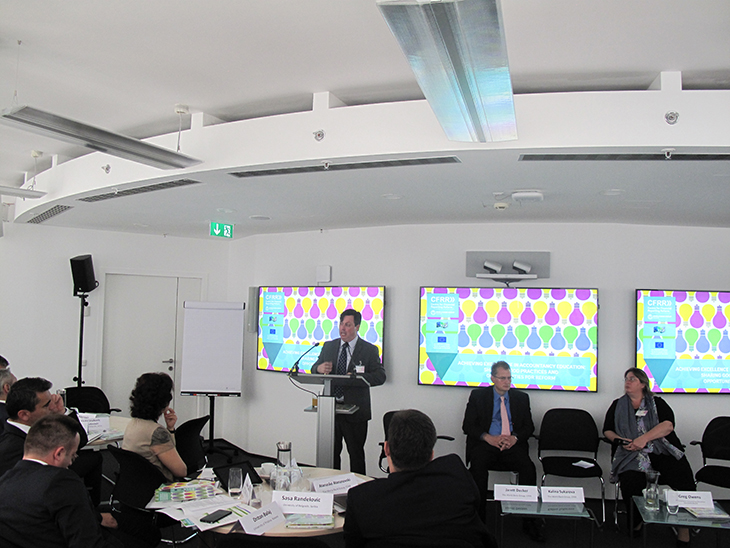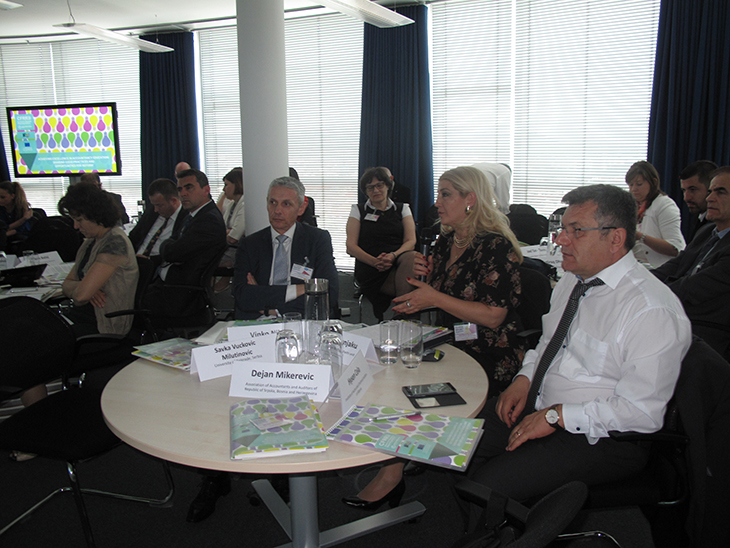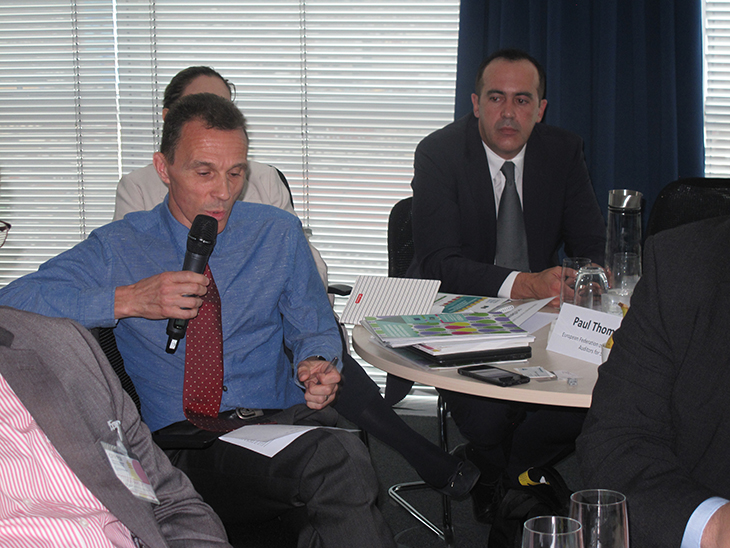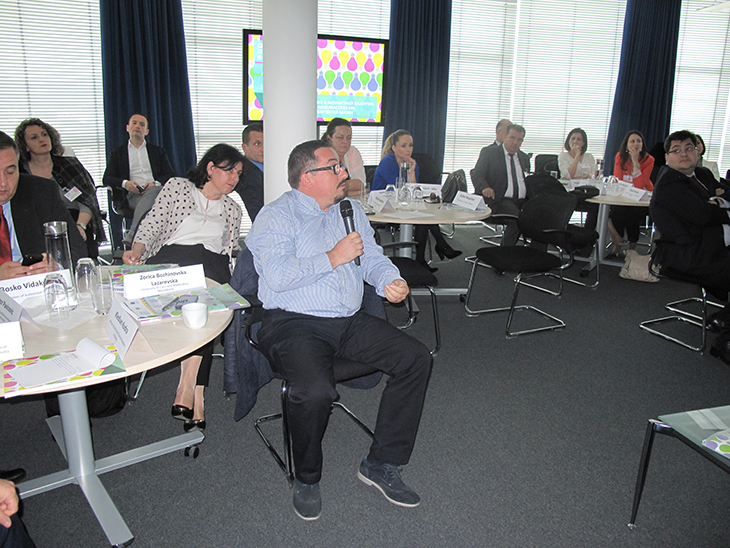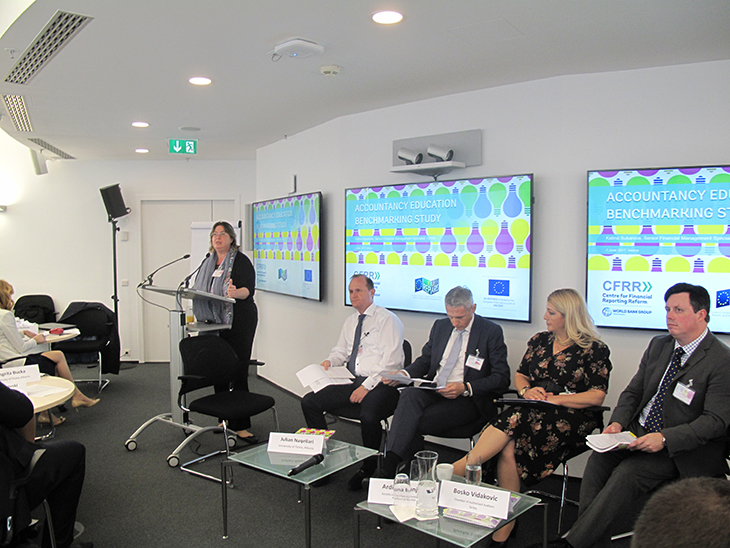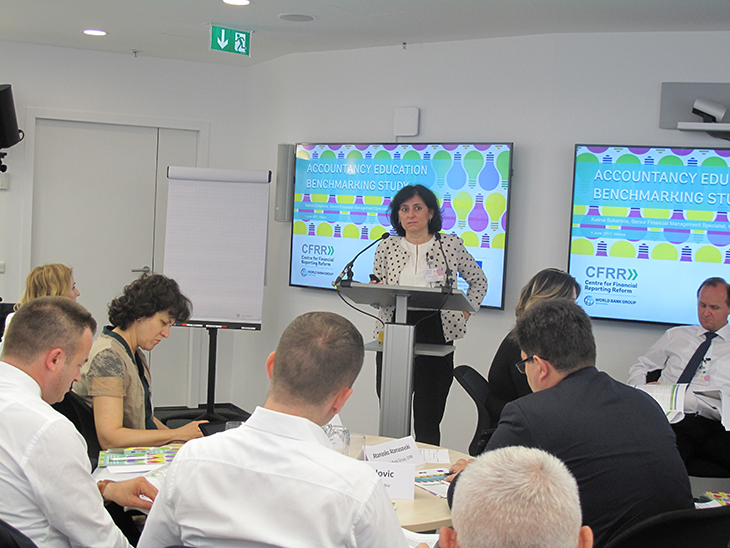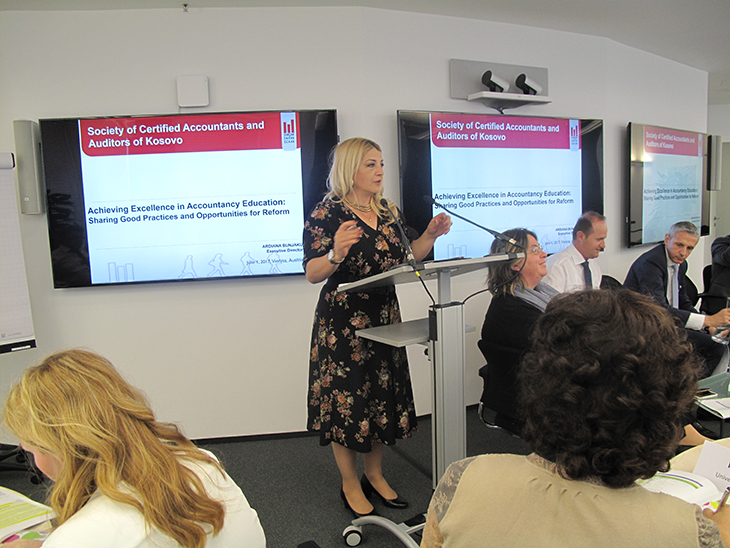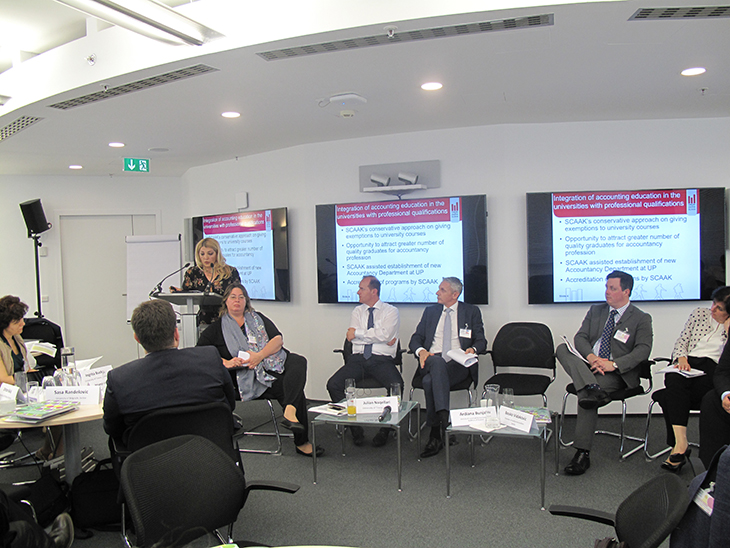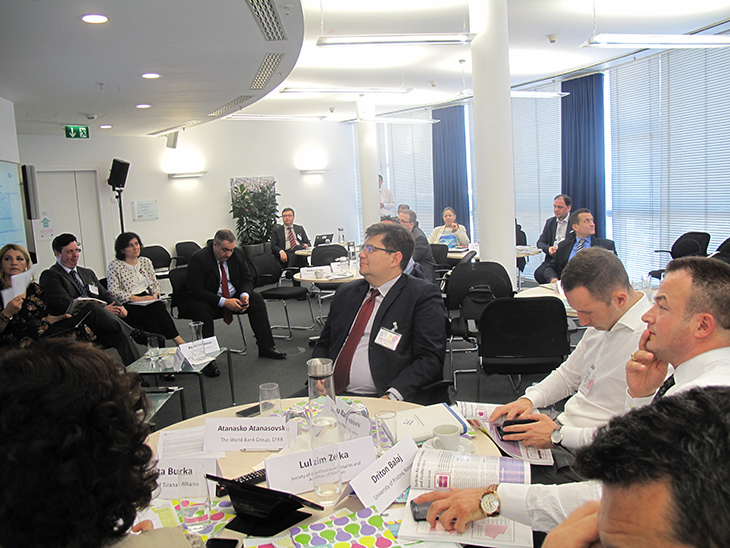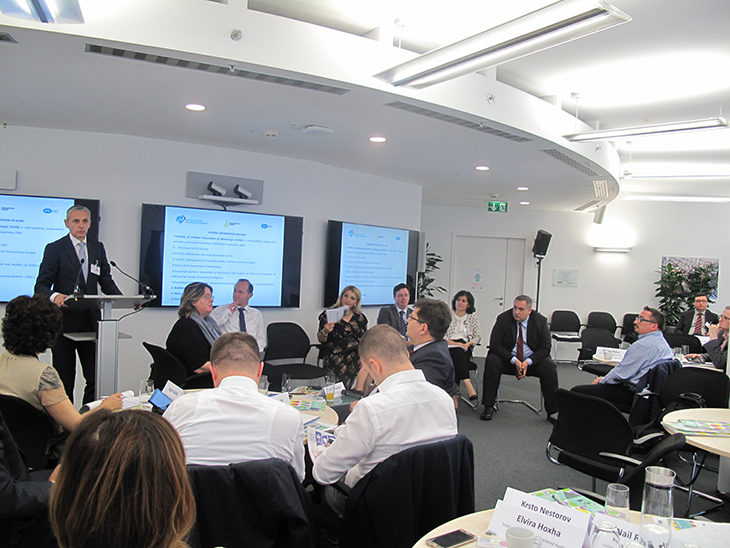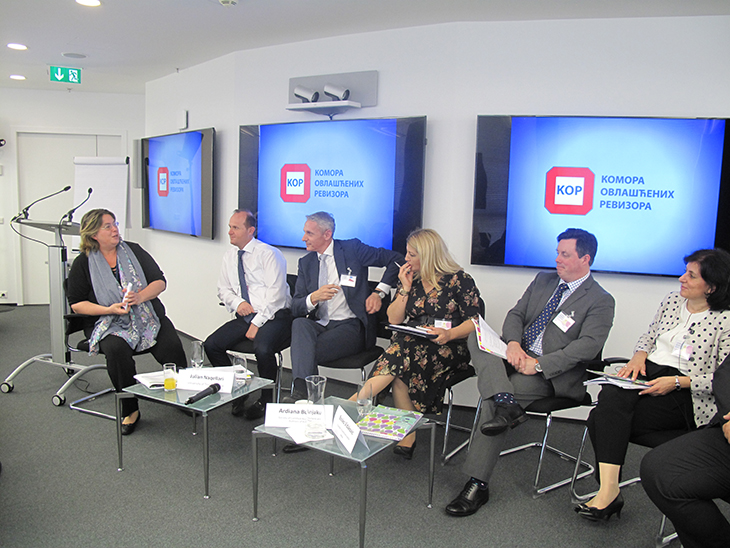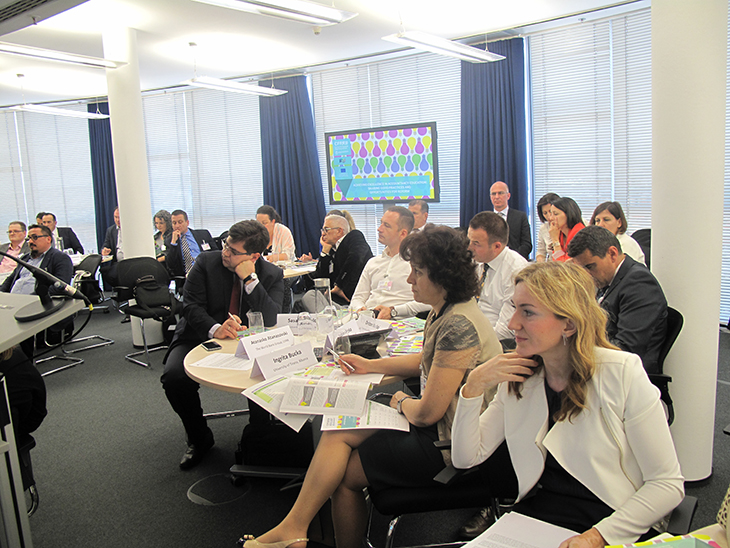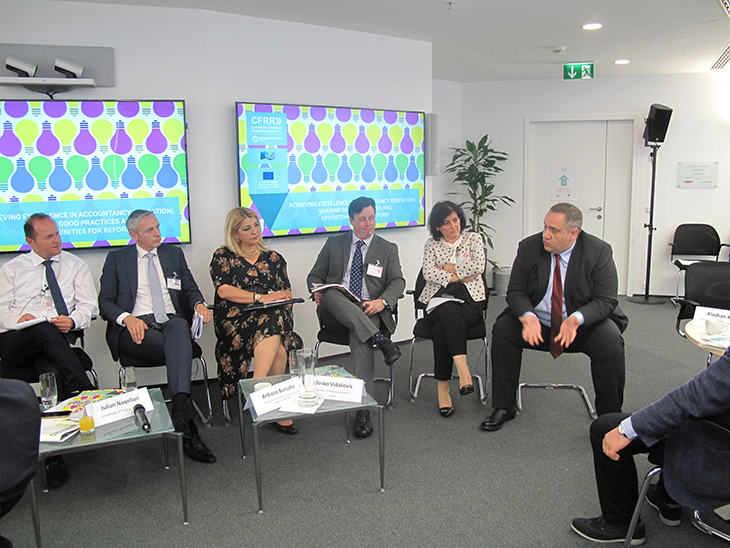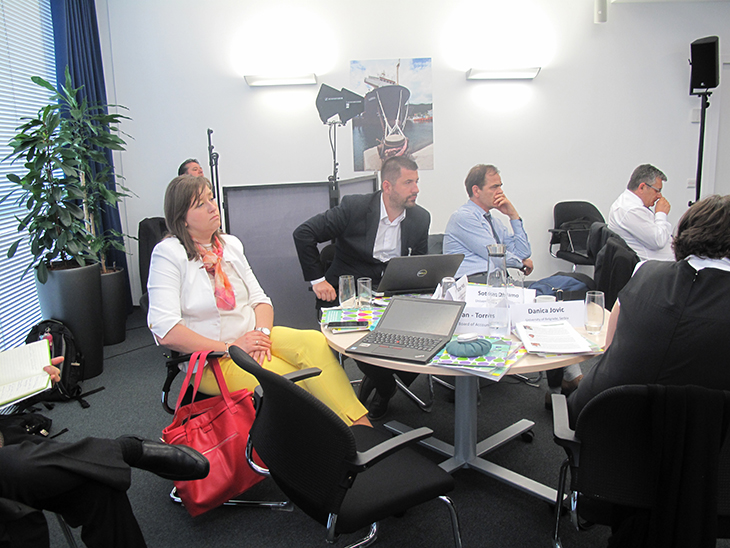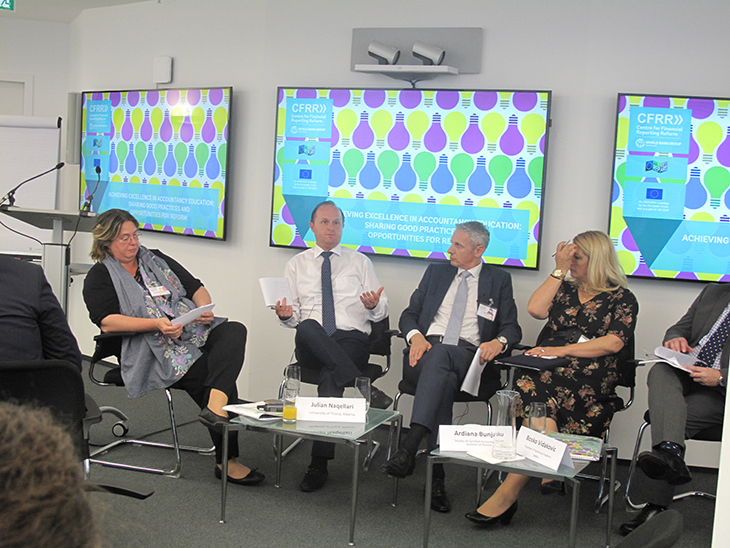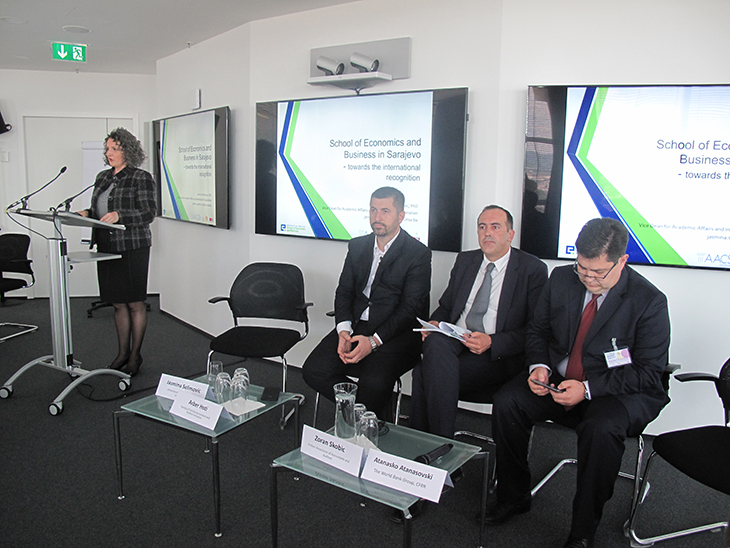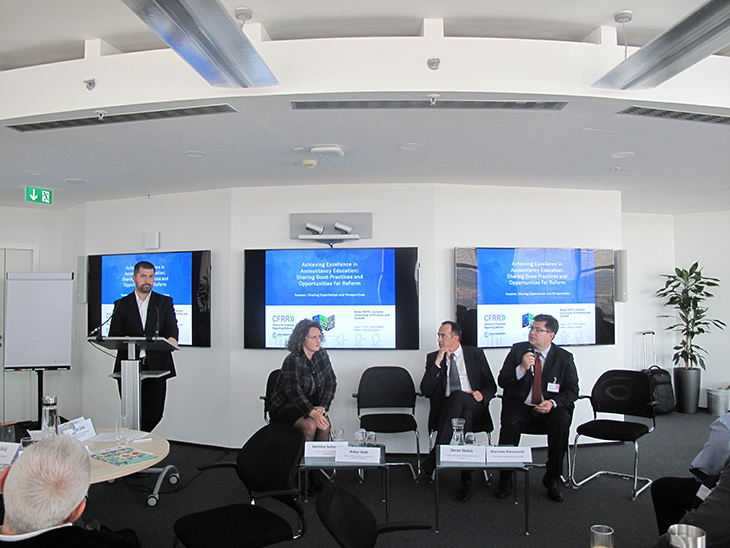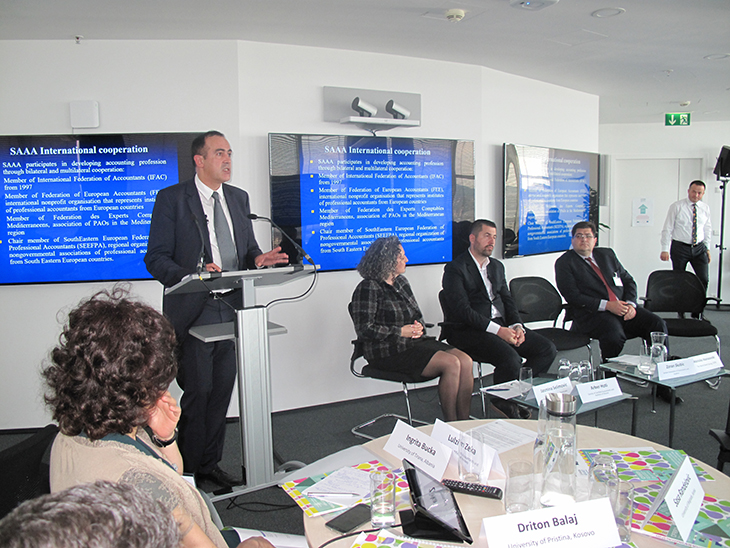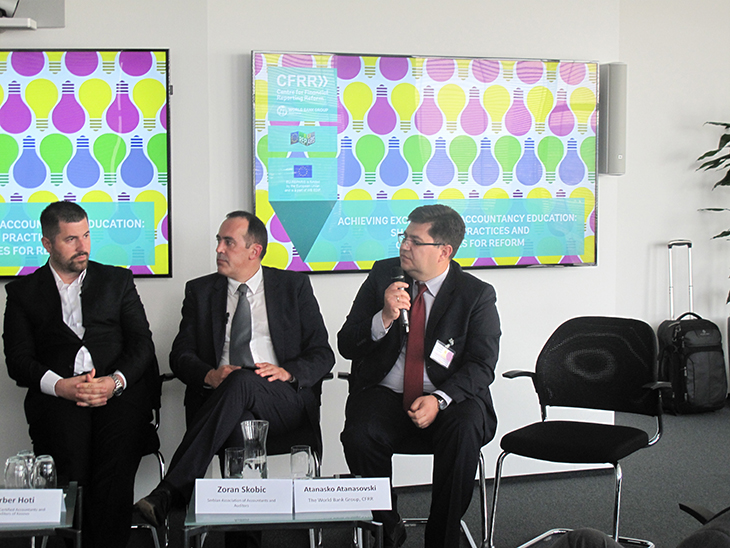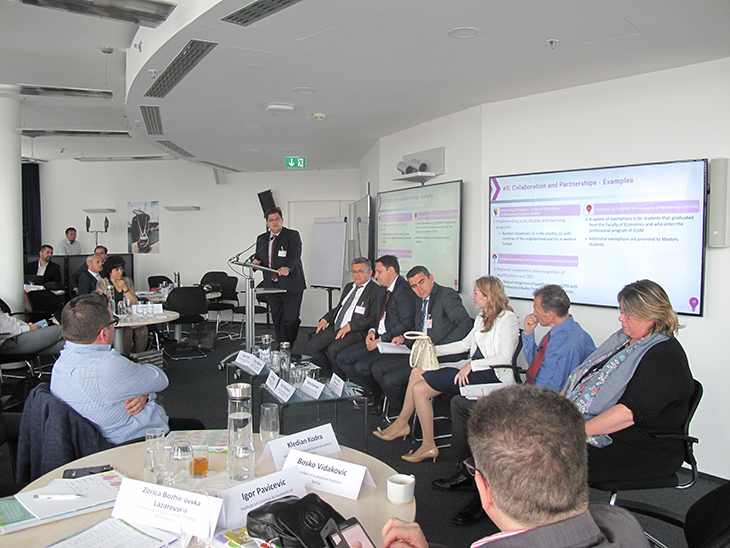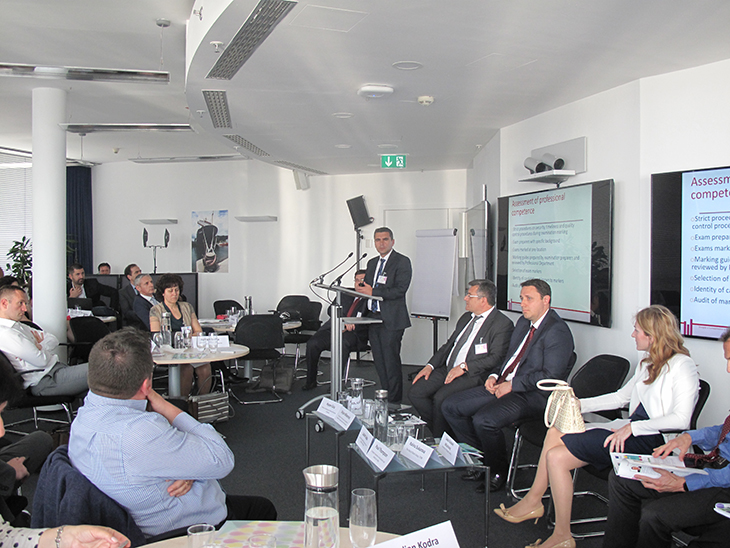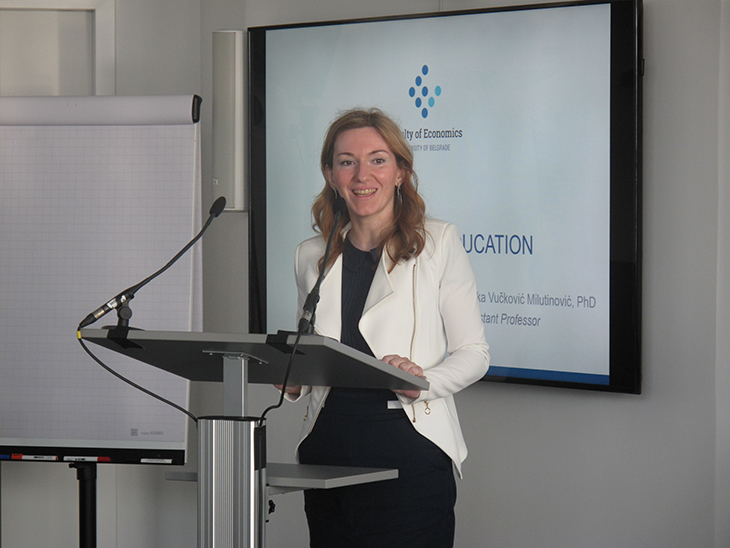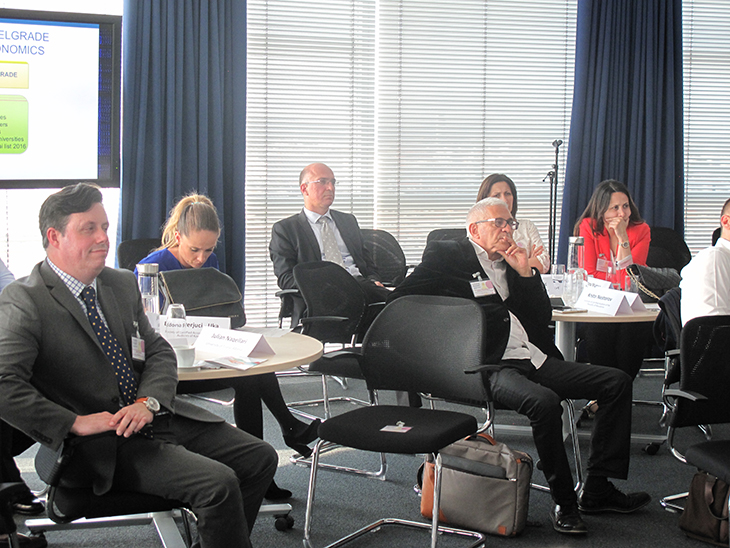Recognizing that high quality financial information is supported by sound accountancy education systems that develop and improve the competence of professional accountants, accountancy education providers (both academic and professional education providers) met in Vienna on 1 June 2017 to presented the findings of the Regional “Accountancy Education Benchmarking Study”, developed under the Education Community of Practice (EduCoP) of the Road to Europe: Program of Accounting Reform and Institutional Strengthening (EU REPARIS).
This one-day workshop was organized by the World Bank’s Centre for Financial Reporting Reform (CFRR) to discuss a range of good practices and opportunities for reform proposed by the CFRR in response to the findings of the Study.
Six countries participated in the study: Albania, Bosnia and Herzegovina, Kosovo, Macedonia FYR, Montenegro and Serbia. The Study was a comprehensive assessment of the countries’ 14 universities and Professional Accountancy Organizations (PAOs), which together provide 25 academic and professional accountancy education programs to around 4,120 enrolled students. Curricula content, learning outcomes and proficiency levels from these accountancy programs were analyzed using a set of international benchmarks, including the International Education Standards™ (IESs™) issued by the International Accounting Education Standards Board™ (IAESB™).
The Accountancy Education Benchmarking Study was undertaken with four key objectives in mind: the EduCoP enabled members to engage in a peer learning and regional exchange process whereby universities and PAOs share good practices and develop solutions to shared challenges through a collaborative process; exploring synergies between academic and professional accountancy education as a prerequisite for developing adequate accountancy education systems and ensuring effective use of country level education resources; implementing a “learning outcomes approach” in accountancy education promulgated by the revised content based IESs and international good practices as more effective learning experience; and enabling a diagnostic that aims to assist members of the EduCoP to engage in a process of international recognition and accreditation of national programs.
Sound accountancy education systems improve the competence of professional accountants and contribute to enhanced public trust and confidence in the quality of their work.
The main focus of the event was the presentation of the findings of the Regional Accountancy Education Benchmarking Study and the accompanying publication that is a regional Collection of Good Practices in Accountancy Education.
The Study and the accompanying publication propose a number of practical tips which, when combined with the good practices identified, can help accountancy education providers to seize the key opportunities and implement accountancy education reforms.
Mr. Greg Owens, Member of the IAESB provided a key note address that emphasized how developing and implementing high quality, globally accepted IES helps establish and improve accountancy education and leads to increased competence of the worldwide accountancy profession and also contributes to strengthened public trust.
Three panel sessions featured discussions and presentations exchanged from representatives of academic and professional education institutions from the EU REPARIS countries. During these panel sessions, the topics explored included: Key opportunities identified during the Study that can support future education reforms and any potential implementation challenges concerning these, sharing experiences and perspectives of academic accreditations and the benefits and challenges of the process, good examples of public sector education programs, regional cooperation and many other good educational practices from the region that had been identified during the Study.
The conference provided a unique opportunity for the exchange of information between peers and highlighted specific areas for future attention during in-country reforms as well as future working assignments of the EU REPARIS EduCop.
Disclaimer: This webpage was created and maintained with the financial support of the European Union. Its contents are the sole responsibility of CFRR and do not necessarily reflect the views of the European Union.
